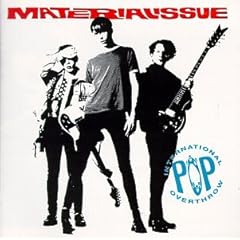We drove into the packed parking garage behind the building, pulled into a space, and looked out at concrete columns and support beams. As another car drove up behind us, I could feel the building sway.
 I asked her if she thought it was safe. She said it was a miracle that any building could hold thousands of cars, supporting millions of pounds of weight.
I asked her if she thought it was safe. She said it was a miracle that any building could hold thousands of cars, supporting millions of pounds of weight. "But the support beam looks bent," I noted. She looked, nodded, then said we should go.
Yes, the building would probably collapse, but it had been there for years, so it probably wouldn't collapse that day. And, she reasoned, if it did we really wouldn't want to be there in the garage.
Then she walked away, leaving me to watch in wonder. A few steps later, she turned back, smiled, and asked if I was coming with her. Her world made little sense to me and the weight of her insanity crushed and bent logic like it was that support beam in the garage. And I knew then and there that she'd snap someday, but she'd been functional for years, so she probably wouldn't snap that day. So I nodded. And I followed.(Link for Gmail subscribers.)
If Material Issue had come along 20 years earlier, they'd have been superstars. 10 years later, they'd have been stars.
But the band, formed in 1985 in Chicago, burst onto the national scene in the early 90s, when grunge ruled and there was little interest in power-pop trios singing songs of love and yearning (most of them with girls' names in the titles).
But there was always something edgy about this band -- they didn't play the sweet power pop of the Raspberries. No, this was a Power Trio, merging their pop with anger and irony and then filtering it all through a fuzzbox.
Too much? Probably. Jim Ellison, Material Issue's lead singer and songwriter, took his life 15 years ago at the age of 32.
And after that, what's left? A handful of albums and a legacy so strong that an annual power-pop festival was proudly named after the band's first album.
And then there's this song:
The verses meander as the singer desperately tries to convince anyone who'll listen that he's the only one he really understands this girl of his dreams. Each verse ends with words and lines crammed together, desperate to declare undying love and fighting the realization that he's not fooling anyone.
Then what passes for a chorus: revved-up guitar and the plaintive wail "Valerie Loves Me." And the anguish always makes me wonder who the singer's trying to convince: us or himself. And that's it (at least for the chorus). Because what more can you say?
The answer's in the other verses -- Valerie's dreaming of other guys, hanging around with other guys, not giving the singer the time of day. But that won't stop his echo-drenched cry in the chorus: "Valerie Loves Me!"
And that should be enough, but it's not. So the singer projects his dream girl decades into the future when she's old and gray and has nothing. And then, he rejects her retroactively from the future (even though careful listeners may long since have concluded that she might not even be know he exists) before one last primal scream of a semi-chorus: "Valerie Loves Me." Which leads into a tentative instrumental break that ends uncertainly, resolving nothing (and therefore perhaps underscoring that the singer is the ultimate in unreliable narrators).
*********************
Years later, I drive by the parking garage alone.
The entrance is taped off and a cop directs traffic around it.
I slow down to ask what happened. "A support beam buckled," he tells me. "They're gonna have to knock the whole garage down."
I nod, wondering if I should find the girl (whose own support beam buckled long ago) and tell her... or just keep driving.







2 comments:
Man, that latter song is brutal. Your story is eloquent and bittersweet, as usual. You have a lovely way with words.
Keep driving... the other way madness lies (literally, from the sound of it!)
Post a Comment